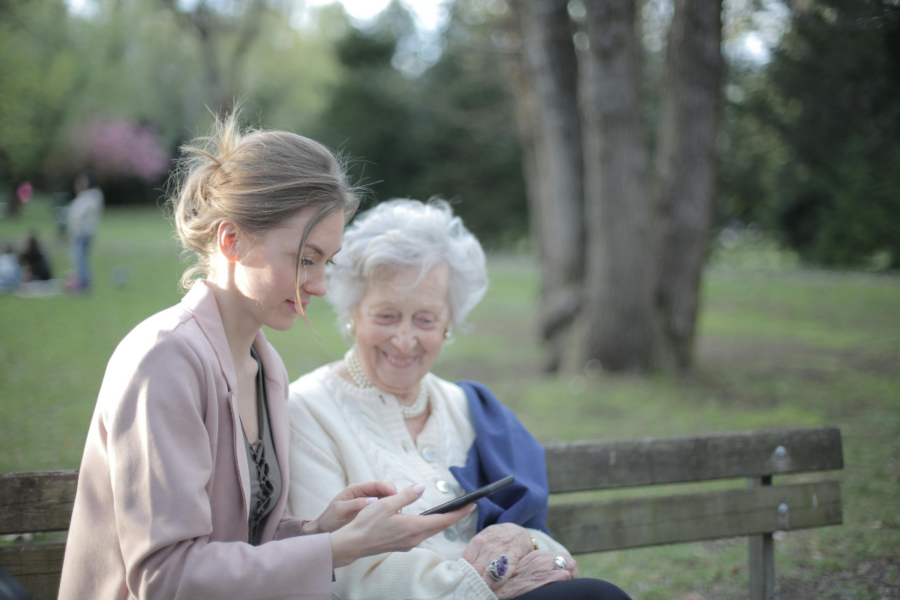Platinum’s Editor-In-Chief Katy Sunnassee looks at wills and the importance not only of having one but what it could mean for your family.
I’m slightly ashamed to admit I’ve not yet written a will. I know it’s crucial for multiple reasons. My father-in-law passed away last October, which only highlighted to my husband and me the need to sort out our finances. Although my late father-in-law had a will, it hadn’t been updated since 2018, after which some matters had changed and, without going into too much detail, it left a huge headache for my husband. Not least because he had to wade through boxes and boxes of paperwork, none of which had been kept in an orderly fashion, but, to add to that, because his dad hadn’t told him what he’d decided, it all came as a bit of a shock.
While death isn’t exactly a fun topic, it’s made me start conversations with my own parents to find out what they plan to do, and they’re happy to involve me and my brother in the conversation so that one day – and may it be a long, long time coming – we’re not left a) surprised about their decisions, and b) left with a paperwork nightmare on our hands.
For example, you may want to inform the people named as executors on your will that they will be so appointed. This allows you to have early conversations so, when the time comes, the process isn’t such a shock and the people involved will have an idea about what they’ll need to do. An executor is a person named in a will to be responsible for administering the estate of the deceased. There may be more than one executor but not typically more than four. An executor may be a relative of the deceased, close friend, or a professional, such as a solicitor.
‘The executor will have a number of duties and responsibilities, including sorting out the assets and liabilities of the estate, paying any taxes arising, and administrating and distributing the estate in accordance with the will and law,’ says Joanna Grewer, a partner at Roythornes Solicitors (roythorne.co.uk).
Acting as an executor can be burdensome and involve a lot of work, as my husband is discovering only too well. His father had multiple bank and savings accounts, including one in his birth country, plus a house there, where the laws of inheritance differ. ‘There can be personal responsibility for an executor if something should go wrong. As such, legal advice is typically recommended to help relieve some of the burden and to ensure that everything is dealt with properly, even if that may come at a cost to the estate,’ says Joanna.

Any Will Will Do?
But do we need to pay to see a solicitor to have a will drawn up? Can’t we just buy one of those DIY kits from the internet – I’ve seen them for about £50 – or even write one out on a napkin as long as it’s signed? ‘The formalities for a valid will are still, to a large extent, as they were when set out in the Wills Act 1837, which, in summary, states that no will shall be valid unless it is in writing and signed by the person making it in the presence of two witnesses present at the same time.
This latter part caused significant difficulties during lockdown when visits were restricted. As a result, the government later passed legislation enabling witnessing to take place by way of video-conference, although that temporary concession has since lapsed and the physical presence of two witnesses is once again necessary,’ says Joanna.
But be careful about who you get to be your witnesses, as they can’t be related to you or mentioned in the will. ‘The witnesses must not be beneficiaries of the will or the spouse of a beneficiary, or they will inadvertently disinherit themselves! Most people use friends, neighbors, colleagues or a solicitor as their witnesses,’ says Joanna. Although a will does not have to be made with a solicitor, it can help to ensure that your will is correct, validly executed, and suitable for your needs. ‘Significant issues can arise with a badly prepared will, which may not come to light until you are gone, leaving your intended beneficiaries in difficulty,’ adds Joanna.
Another reason to have a will is to make sure your assets go to those you intend them to, and that other parties don’t make a claim on the estate. ‘The list of potential applicants for such a claim is, broadly, a spouse (including civil partner), an ex-spouse who has not remarried, a person who lived with the deceased for two or more years just before their death as if they were married (i.e., longer-term partners), a child of the deceased, any person “treated as a child of the family” by the deceased and any person who was being maintained by the deceased,’ says Joanna.
Such applicants may be able to bring a claim against the estate, whether mentioned in the will or not, if they do not receive “financial provision as would be reasonable in all the circumstances”. ‘There are a number of factors that determine what reasonable financial provision would be but this would include the applicant’s financial resources and needs, the deceased’s provision and obligations towards them, and the size and nature of the estate,’ explains Joanna. Such claims are best avoided with proper consideration, legal advice, and planning as claims of this nature can be notoriously difficult, costly, and stressful for the family.

Inheritance tax
Inheritance tax (IHT) is a tax that is potentially charged on an individual’s estate upon their death. Your “estate” is generally defined as the value of your assets, excluding most pensions, plus most gifts made in the preceding seven years, minus any outstanding liabilities/debts. Everyone has a basic IHT allowance of £325,000. If you own your property and have lineal descendants e.g., children or grandchildren, that will inherit, your estate may also claim an additional allowance called the Residence Nil Rate Band, worth a further £175,000, subject to various conditions.
‘Assets inherited by a spouse are typically exempt from IHT, and the surviving spouse’s estate can usually claim the unused allowances of their late spouse/civil partner on their later death,’ says Joanna. Relief may also be available to claim on agricultural land/assets and on business interests/assets, subject to various conditions. Gifts to charities are typically exempt from tax. Assets in excess of the available allowance(s) and not qualifying for exemption/relief may be hit with IHT at 40 per cent, which can be a substantial amount for some estates.
‘With IHT allowances frozen for many years now and the value of assets increasing, more and more estates are being caught by IHT,’ says Joanna who says inheritance tax is just one of many factors she looks at when advising clients in respect of estate planning. ‘There are often some sensible opportunities to mitigate a potential IHT bill in future. Unmarried couples, in particular, typically benefit from IHT planning to make better use of their allowances – given they do not have the same privileges as married couples – as well as any individual whose chargeable estate exceeds or may soon exceed their available allowances,’ she adds.

Don’t Leave It to Chance
And what if you die with no will? ‘If someone does not have a will, then certain people will be entitled, in a particular order, to apply to act as an “administrator”, which is more or less the same role as an executor, except an executor derives their authority under the will from the date of death and an administrator only has legal authority to act once the Probate Registry grant it,’ adds Joanna.
Probate is the process of proving the last will with the Probate Registry, with a Grant of Probate then issued confirming the executor’s authority to act. ‘A grant is typically needed in order to sell/transfer solely owned land/property in the name of the deceased, to close bank accounts, savings, or investments over a certain balance, and to deal with shareholdings above a certain value, which varies depending on the holding and share registrar. Some less complex estates do not need a grant of probate to be administered but the majority do,’ says Joanna.
And you can expect all this to be a lengthy and drawn-out procedure, so beneficiaries of wills can’t count on receiving their inheritance any time soon. ‘The Probate Registry has a significant backlog, with some applications taking 16-20 weeks to progress. This delay has caused substantial difficulty for some families, in terms of accessing funds, selling properties or dealing with a number of other matters. There are signs that the timescales are reducing and hopefully will continue to do so,’ says Joanna.
This might be a better estimate: my husband has been told that probate could take up to 18 months or more (as of writing it’s been four months since the death and we’re nowhere near things being finalized). ‘If someone does not have a will then the Probate Registry would issue a Grant of Letters of Administration, instead of a Grant of Probate – but aside from the name, there is no real difference,’ says Joanna.

Take Back Control
Another reason to have a will is to avoid further complications and delays for any family. ‘I would also stress the importance of not leaving your estate to the mercy of the intestacy rules as then it becomes out of your control and can result in those closest to you not benefiting in the way you would presume they would, or to the extent you would want them to,’ says Joanna.
‘The intestacy rules are often referred to as “an attempt to make one size fit all”, when families come in all shapes and sizes, and you may well have very different intentions. Some assume that if they pass away without a will, their spouse will inherit everything but that is not necessarily the case if you have children, and some of the estate may pass to them and cause difficulty for your spouse.’
It can also cause problems for a couple living together that are not married. ‘An unmarried partner would not stand to inherit under the intestacy rules, making a will particularly important for such couples,’ she adds. If someone should pass away without any family – not even aunts, uncles, cousins etc – then their estate may go to the Crown, known as “bona vacantia”.
‘A will may typically include a substitute provision if your immediate family or primary beneficiaries did not survive you, which may be, for example, specific distant relatives, friends, or charities, in order to benefit those you would want to help and to avoid bona vacantia,’ says Joanna.

Put It into Trust
We’ve all heard of how the uber-rich can often avoid things like inheritance tax (IHT) being passed on to their family by putting their properties and other assets into trust funds, but is this something regular people can do? My father-in-law did this with his home, outlining the details of the trust in his will, which would come into effect upon his death.
It means my husband and his mum are now joint trustees of the home she still lives in, and it can’t be sold without the agreement of both of them (there were other assets that transferred directly to her). So does putting property into trust mean heirs can avoid inheritance tax? ‘Trusts are commonly used to provide asset protection and possibly also tax mitigation benefits. Essentially, certain assets are transferred to chosen trustees to manage for particular beneficiaries,’ says Joanna.
This can sometimes be better than assets going directly to a beneficiary, particularly if they are young or it is otherwise appropriate for someone else to manage the trust for them. ‘There are notable differences between trusts created in wills and those created during one’s lifetime. The tax treatment can also differ significantly and a trust does not necessarily keep assets outside of the scope for inheritance tax.
While a properly prepared trust can have benefits for the family, legal advice is recommended to ensure it works for you and your loved ones and to avoid later surprises,’ warns Joanna. For example, there is a rule whereby assets remain potentially in scope for inheritance tax even after settled in trust if the person dies within seven years of setting up the trust. ‘And there is also potential inheritance tax if too much of a person’s estate is settled on trust,’ says Joanna.

You also cannot set up a trust and stay living in said house or receive an income from its rental if you intend to keep it out of your estate for IHT purposes, under the so-called gift with reservation of benefit rules. ‘A common use for a trust is to enable a surviving spouse to stay living in a house co-owned by them and the deceased while ensuring that, after the surviving spouse’s death, the share of the property belonging to the first person to pass reverts to their children or other intended beneficiaries,’ explains Joanna.
This means the trust can, accordingly, protect the assets held if the survivor were to remarry or if it’s at risk of passing elsewhere if simply left outright to the surviving spouse. Guardians are also often appointed in wills by parents of minors, meaning that if the parents should die before their child reaches 18, the guardian could apply to take on parental responsibility for the child, making decisions on matters that the parents would otherwise have done.
‘Raising awareness about these issues is really important, as many do not seek advice, and do not have the appropriate legal documents in place, causing headaches and heartache for their loved ones,’ says Joanna, who urges people to review their will periodically to make sure it’s still right for the circumstances, rather than writing it once then leaving it. ‘Things like tax rules, family circumstances, and your general situation are all subject to change, and could impact what you originally intended when your will was written,’ says Joanna.
List of potential people who may make a claim under the Inheritance (Provision for Family and Dependants) Act 1975:
- A spouse (including civil partner).
- A child of the deceased.
- An ex-spouse who has not remarried.
- A person who lived with the deceased for two or more years just before their death as if they were married (i.e., longer-term partners).
- Any person “treated as a child of the family” by the deceased.
- Any person who was being maintained by the deceased.
Joanna Grewer is a full member of the Society of Trust and Estate Practitioners (STEP) and the Association of Lifetime Lawyers. Roythornes Solicitors have branches across the Midlands and East Anglia. For more, visit roythorne.co.uk.
Words: Katy Sunnassee. Images: Shutterstock, Pexels








